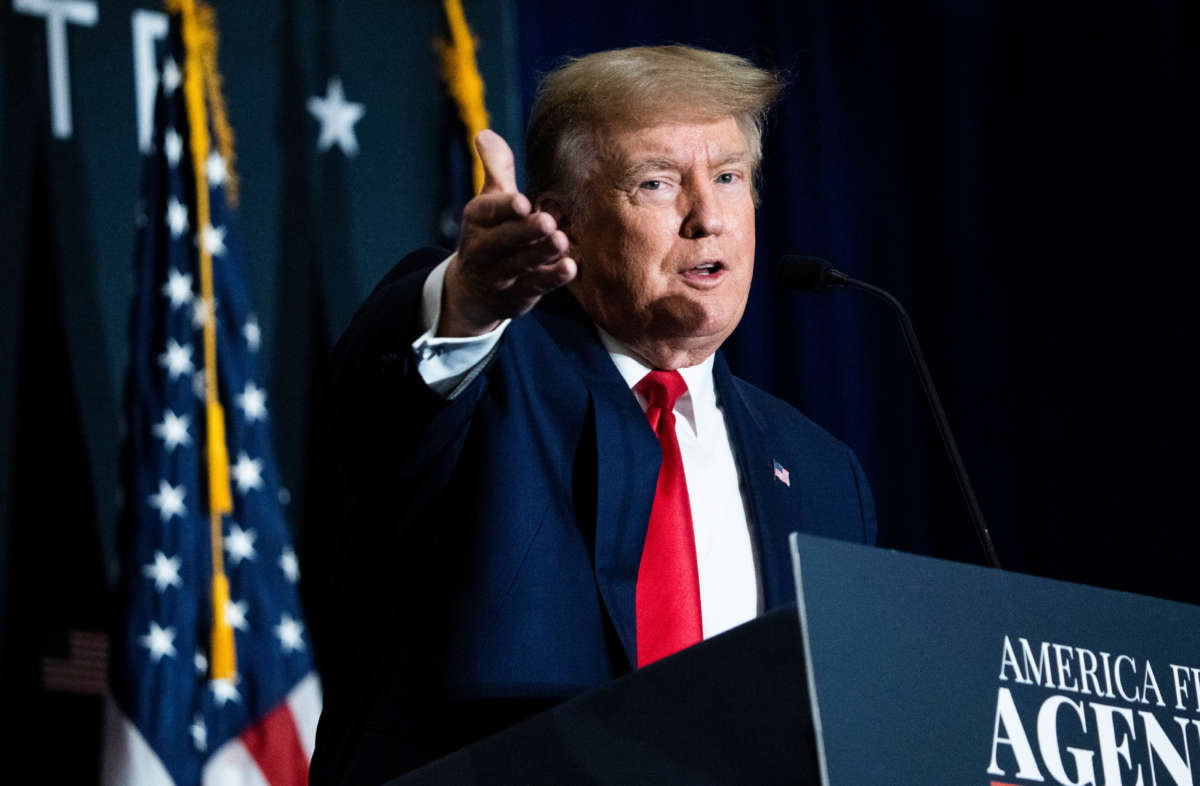The legal filing from former President Donald Trump’s lawyers this week seeking to have classified documents removed from his Mar-a-Lago estate returned to him appears to include arguments that are admissions from him that the documents do not actually belong to him, but to the federal government.
Asha Rangappa, a former FBI agent and former associate dean at Yale Law School, made the contention this week, following the filing by Trump’s legal team on Monday.
Among the many claims Trump is making in his lawsuit seeking the documents’ return, he is saying that he has “executive privilege” to continue holding them. Such an argument suggests that the classified material emanated from the executive branch of the federal government, rather than from him personally.
In other words, while the documents may have been produced during his presidency, that doesn’t mean he is the owner of them.
“If he’s acknowledging that he’s in possession of documents that would have any colorable claim of executive privilege, those are by definition presidential records and belong at the National Archives,” Rangappa said to The Guardian.
Although former presidents have some limited ways to claim executive privilege, ultimately only the current president — in this case, President Joe Biden — has the final say on what material falls under that purview.
Such an argument by Trump’s lawyers is an improper one for them to be making in this case, Rangappa said, and one that inadvertently suggests that Trump’s actions were illegal.
“It’s not clear that executive privilege would even be relevant to the particular crime he’s being investigated for and yet in this filing, he basically admits that he is in possession of them, which is what the government is trying to establish,” she explained.
Trump’s legal motion is asking for a special master to look through the documents before investigators do. Such a figure, usually a former judge, would examine evidence to determine if any types of privilege (including attorney-client privilege, for example) should preclude investigators from looking at the documents.
A Department of Justice (DOJ) “filter team,” separate from the team investigating Trump, is already reviewing records to determine if there is privileged material among the documents retrieved from Mar-a-Lago. Requesting the involvement of a special master is not atypical in these circumstances, but making the request several weeks after the material was seized is peculiar, and puts into doubt the claim that this is a time-sensitive matter.
Trump claims in his lawsuit that he has been “fully cooperative” with investigators in returning classified documents he took from the White House to Mar-a-Lago. But the series of events of the past weeks and the DOJ’s actions throughout the year suggest otherwise.
Trump returned 15 boxes of classified documents in January after the National Archives came to his Palm Beach, Florida, home demanding them. In June, the DOJ recovered an additional 26 boxes after it served Trump with a subpoena telling him he needed to return additional classified material he was holding on to. Within that subpoena, Trump was also ordered to return any other classified documents he possessed or came across.
When surveillance footage of Mar-a-Lago, and following the cooperation of an informant with knowledge of what was kept on the property, alerted the DOJ to the fact that Trump possessed more documents than he had previously disclosed, a search warrant was obtained and executed earlier this month. An additional 20 boxes of classified documents were retrieved in that raid.
